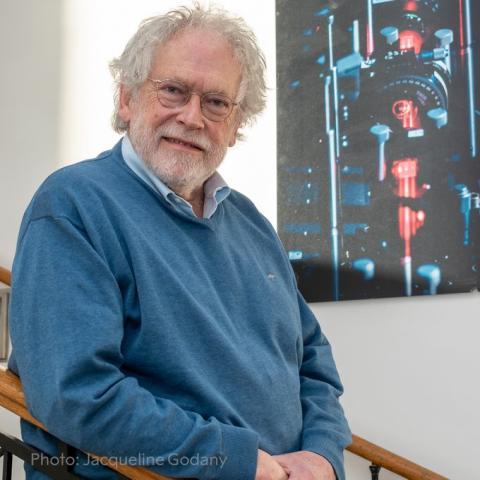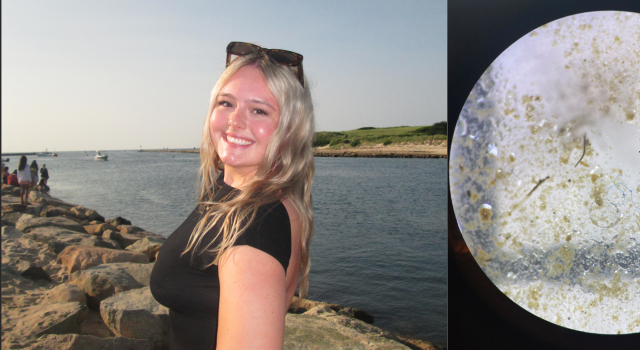Research of Nobel Laureate in Physics on Quantum Entanglement Originated at Hampshire

Among a group of three scientists to win the coveted prize was physicist Anton Zeilinger who served on a research team at Hampshire with retired professor of physics Herb Bernstein.
In October, the 2022 Nobel Prize in Physics was awarded to three researchers — Alain Aspect, John F. Clauser, and Anton Zeilinger — for their groundbreaking work leading to a new field called quantum information science, an interdisciplinary topic that seeks to understand the analysis, processing, and transmission of information using principles of quantum mechanics.
The trio spent several decades conducting experiments that ultimately resulted in “fundamental discoveries [that] provided a new understanding of nature at the quantum scale and a foundation for new technologies such as quantum computers, secure communications, and networks that transmit information through entanglement,” wrote the NSF in its press release.

Zeilinger, an Austrian “experimentalist,” began working in quantum entanglement on the College’s campus with retired Hampshire College professor of physics Herb Bernstein. Starting in the late 1980s, Bernstein headed up an international research team exploring quantum teleportation, computation, and communication. During 20 years of NSF-funded research, the team produced a number of “firsts” in these fields and in the philosophical implications of modern sciences. Zeilinger is, in fact, the second physicist to be awarded a Nobel from this group. Clifford Shull, of MIT, received the prestigious award in 1994.
Wrote alum Mike Fortun 79F, a historian and anthropologist of science, “It’s testimony to the underappreciated role that liberal arts colleges and primarily undergraduate institutions like Hampshire have played in this and other scientific fields.”
Photo of Anton Zeilinger by Jacqueline Godany



